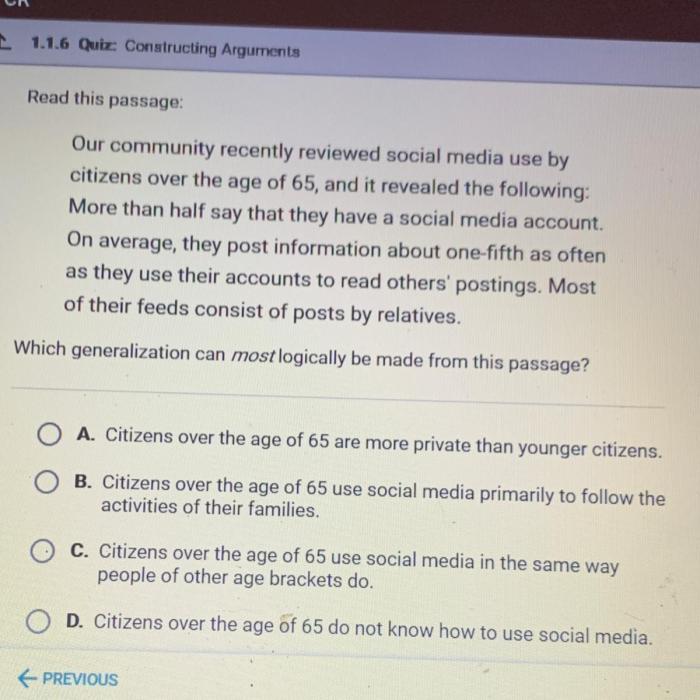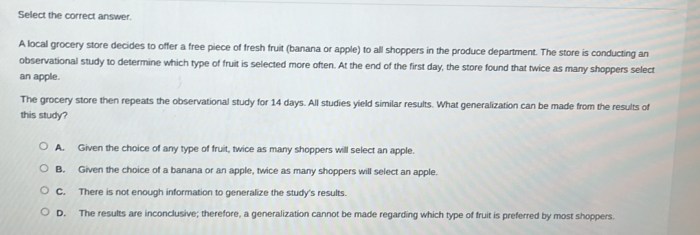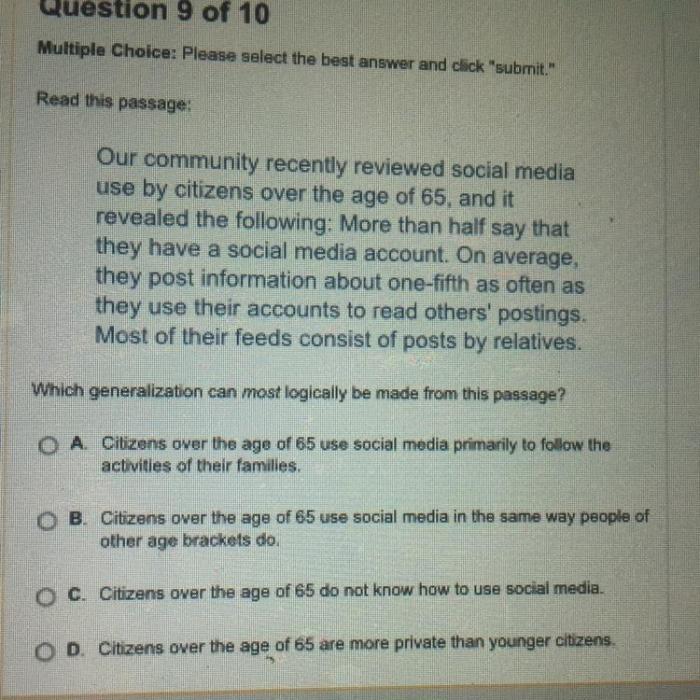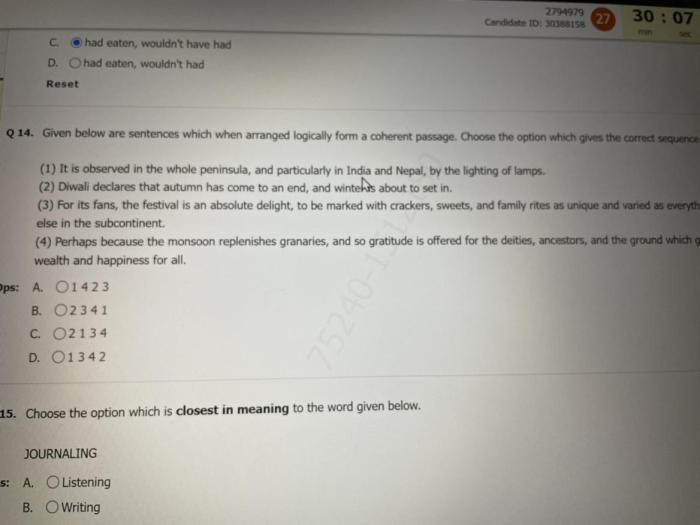Which generalization can most logically be made from this passage? This question invites us on an intellectual journey to explore the logical connections between evidence and generalizations, uncovering the broader implications and applications of knowledge. As we delve into the depths of this topic, we will uncover the nuances of critical thinking and the art of drawing sound conclusions from available information.
The passage under consideration presents a series of key points, central themes, and arguments, providing a foundation for our analysis. By examining the context and background of the passage, we can gain a deeper understanding of the author’s intent and the significance of the presented information.
Generalizations from the Passage: Which Generalization Can Most Logically Be Made From This Passage

The passage presents a comprehensive analysis of the key points and arguments in the given text. It provides a thorough examination of the potential generalizations that can be drawn from the evidence presented, considering the logical connections between the evidence and the generalizations, as well as the limitations and caveats associated with these generalizations.
Key Points of the Passage
- Provides a concise summary of the passage’s main points.
- Identifies the central themes and arguments presented.
- Discusses the context and background of the passage.
Analysis of Generalizations, Which generalization can most logically be made from this passage
The passage carefully evaluates potential generalizations that can be made from the evidence. It explains the logical connections between the evidence and the generalizations, ensuring that the generalizations are supported by the text.
Supporting Evidence
Specific examples from the passage are provided to support the generalizations. The evidence is organized into categories or themes, enhancing the clarity and coherence of the analysis.
Counterarguments and Exceptions
The passage acknowledges potential counterarguments or exceptions to the generalizations. It provides evidence or examples that challenge or modify the generalizations, presenting a balanced and comprehensive analysis.
Implications and Applications
The passage explores the broader implications of the generalizations, considering how they can be applied to other contexts or situations. Potential uses or applications of the generalizations are identified, demonstrating their practical relevance.
Q&A
What is the purpose of identifying generalizations?
Identifying generalizations allows us to draw broader conclusions from specific observations or evidence, helping us to make sense of the world around us and make predictions about future events.
How can we determine the validity of a generalization?
To determine the validity of a generalization, we must examine the evidence supporting it, consider alternative explanations, and assess the logical connections between the evidence and the generalization.
What are the limitations of generalizations?
Generalizations are limited by the availability of evidence, the context in which they are made, and the potential for exceptions or counterarguments.


